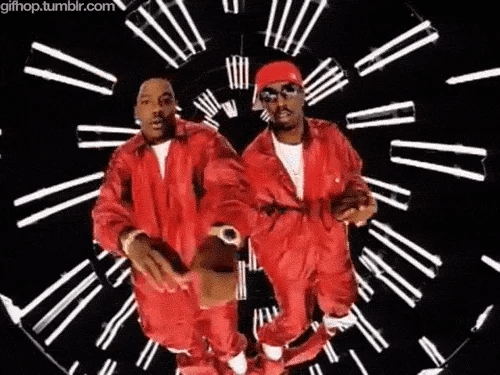You can’t count time.
I mean that only in its literal sense, of course—you can measure time with things like years or hours or seconds. What you can’t do is measure time itself, like counting the number of times that have passed since a certain thing happened.
That’s why we say there’s less time to do something, but we say that there are fewer minutes. If you catch yourself saying “less minutes”, you’re in good company: most folks I’ve heard actually say it this way. I’ve had to sort of train myself to start saying “fewer minutes” over the years.
When you take a big swig from your sports bottle, there’s less water in there, but fewer ounces. I can have less money and fewer dollars or euros or pounds. And so on.
Here’s something interesting about this: flip the script on its head and talk about more.
I might need more time to get somewhere, so that means I need to figure out how to allocate more minutes for my morning commute. I need more water for my afternoon walk since it’s hotter today, so I add more ounces of water to my sports bottle.
And, as a late 20th century poet once implied, more money tends to yield more problems… both of which arise due to more dollars being entered into the equation.
Why should more get a pass here? How come we need two words to talk about fewer things or less of something, but we only need one to describe the inverse?
One idea is that we just need to say “more” an awful lot… well, more. If you’re at a Chipotle, you’re likely to ask for a little more of something until you get enough, but probably not the other way around. Merchants would often haggle with customers in the ancient world, too, and it was natural for “more” to dominate in the world of commerce.
It’s also really natural for all language to have a tendency toward simplicity and simplification, so it would certainly make sense to have only one word for an increase in quantity, regardless of whether or not you could count the thing in question. Still, why don’t we have just one word for less/fewer? This isn’t satisfying our inner etymological detective.
Word origins aren’t much help here, either. More comes from an Old English word called mara, which traces its root all the way back to Proto-Indo-European (PIE) origins. No matter how far back we go, it seems like this word has always meant an increase, whether of quantity or size.
Fewer and less also come from their own separate Old English words.
Less derives from the PIE word *leys- (the asterisk indicates that we’re guessing at the way the word really sounded because we’re reconstructing it). It seems to have been used mainly to indicate that something was smaller, although it became common to use “less” also to mean fewer things by the time it reached Old English.
Fewer, by contrast, derives from PIE’s *pau-, and it seems to have begun as a multi-use word, used for both countable and non-countable things. However, by the time the Proto-Germanic *fawaz had arrived, it had already narrowed to the meaning we have today in English, used mainly for items you could count.
I don’t know how to solve this etymological mystery, but I do enjoy thinking about why two things should be so different, yet seem like exact analogues. Sometimes, there’s no reason other than the random walk of linguistic evolution, and maybe that’s the case here, but it seemed notable to point out that we have one word for additional quantities and substances, but two words for subtracting quantities and substances.
Very curious!
If you enjoy thinking about linguistic evolution anywhere near as much as I do, you might enjoy one of these pieces next:
The Double Is
The funny thing is, is that the English language has a way of adapting that isn’t always sensible or logical. Does the above sentence bother you? It’s an example of a grammatical quirk that really grinds my gears: the double-is. “Well, see, the thing is, is…”
Four Score
“No Franglais allowed!” Mr. Fox (Monsieur Renard) was a stickler for this rule in my 9th grade French class. We weren’t allowed to use both English and French to communicate, seeing as how this wasn’t the proper way to learn a foreign language. The pros of that approach were that you really got the grammar down, but the cons were that you had a much harder time picking up vocabulary, and if you were stuck in the middle of a sentence, you sort of just sat there, stumbling and fumbling, wasting time.
To Hangul and Beyond
It’s the 1440s, and we’re in Korea. King Sejong is frustrated, because he keeps hearing stories of his people trying to learn to read and write, and the people are frustrated. It’s really tough to memorize the thousands of Classical Chinese characters used to convey the Korean language.









"What you can’t do is measure time itself, like counting the number of times that have passed since a certain thing happened."
Oh yeah?
Then why does my mom always ask: "Daniel! How many times have I told you to stop leaving Substack comments that intentionally misinterpret the original intent of a point someone makes?!"?
What about 'Ain't nobody got time for that!' 6 words!!!!